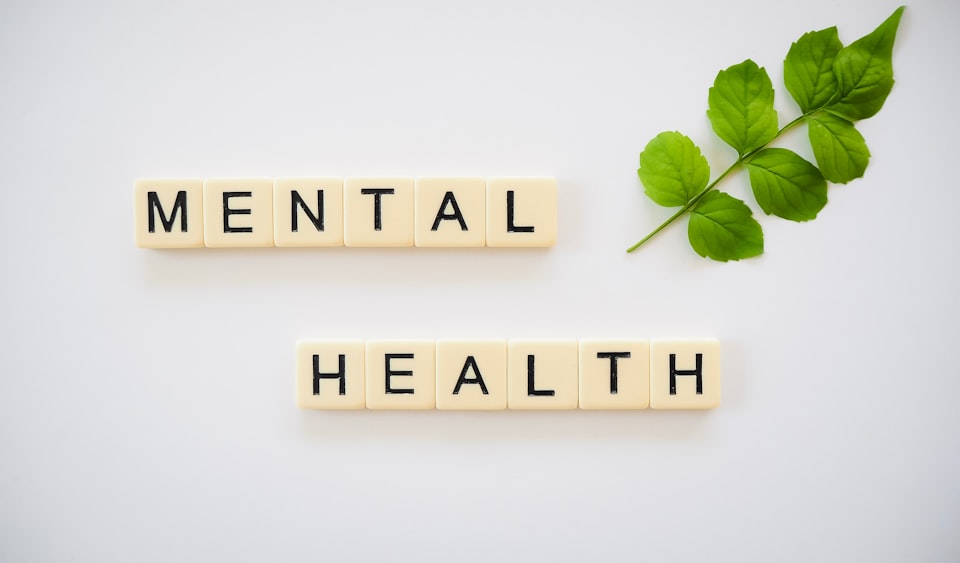What has your microbiome got to do with mental health?

More than you think!
The suggestion that ‘the average doctor would fail a basic nutrition test’ may come as a surprise to anyone thinking that the National Health Service does what it says on the tin. The quote is not my words but those of Dr Will Cole, a leading functional medicine expert and practitioner.
And what he shares on the Diary of a CEO podcast I was listening to on my morning walk needs to be taken seriously for anyone with the gut feeling that ‘something is not quite right’ with their health, especially their mental health.
I’m certainly not an expert in this field but I’ve reached an age where good health and longevity figure high in my list of priorities. I also know that there isn’t a 'magic pill’ out there and that the food marketing squad lie and deceives in order to sell ‘junk in a box' but with great graphics and punchy words.
Dr Cole explains why he stopped being a vegan in his interview along with the 4 foods you should avoid if you want to sort out your microbiome.
So, when we talk about mental health, we're generally referring to the state of our emotional, psychological, and social well-being. It affects how we think, feel, and act, and it's important because it can impact our relationships, our work, and our overall happiness. Some of the main issues concerning mental health include:
- Stress: This is probably the most common issue people face. It can come from work, personal relationships, or just life in general. Too much stress can lead to burnout or other mental health problems like anxiety and depression.
- Anxiety: Anxiety disorders are pretty common, and they can make it difficult for people to handle everyday situations. There are different types, like generalized anxiety disorder, panic disorder, and social anxiety, just to name a few.
- Depression: This is another common mental health issue, and it's characterized by a persistent feeling of sadness or a lack of interest in activities. It can affect a person's ability to work, sleep, eat, and enjoy life.
Did you know that your gut and brain are closely connected, and your gut health can actually impact your mental well-being? This connection is known as the gut-brain axis, and it starts right from when you're in the womb!
The Gut-Brain Axis
The gut-brain axis is the way your gut and brain communicate with each other. In my research, I’ve discovered that your gut is home to trillions of bacteria, known as the microbiome. These little guys play a big role in your overall health, including your mental well-being. They help produce important brain chemicals, like serotonin and dopamine, which are responsible for regulating your mood.
Eating a healthy, balanced diet is key to keeping your gut microbiome happy. When your gut is full of beneficial bacteria, it can help support your mental health. To do this, we need to focus on eating foods that provide the nutrients your gut bacteria need to thrive.
A diet high in processed foods, sugar, and unhealthy fats can throw your gut microbiome off balance. When this happens, it can negatively affect your mental health, making you more prone to issues like anxiety and depression.
Brain Fog
There's increasing evidence that suggests a link between the gut microbiome and brain fog, which is a term used to describe feelings of mental confusion, lack of focus, and difficulty in thinking clearly. Since many people spend a significant portion of their day at work, brain fog can indeed impact their productivity and overall job performance.
The gut-brain axis, the communication network between the gut and the brain, is thought to play a role in the development of brain fog. The gut microbiome can influence the production of neurotransmitters, like serotonin, which affect mood and cognition. In addition, the gut microbiome can also impact the immune system and inflammation levels in the body, which can further influence brain function.
Several factors can contribute to brain fog, and an imbalance in the gut microbiome, or dysbiosis, may be one of them. Poor diet, stress, lack of sleep, and certain medications can negatively affect the gut microbiome and lead to dysbiosis. This, in turn, can contribute to brain fog by disrupting the balance of neurotransmitters, increasing inflammation, and affecting the permeability of the gut barrier.
To address brain fog related to gut health, it's essential to focus on lifestyle and dietary factors that promote a healthy gut microbiome. Here are some suggestions I’ve found:
1. Maintain a balanced diet, rich in fibre from fruits, vegetables, and whole *grains, along with lean proteins and healthy fats. *Dr Cole has an issue with grain.
2. Limit processed foods, refined sugars, and unhealthy fats, which can negatively affect gut health.
3. Consider incorporating probiotic-rich foods, like yogurt and fermented vegetables, to support a healthy balance of gut bacteria.
4. Get regular exercise, as physical activity has been shown to positively influence gut health and overall well-being.
5. Prioritize sleep and stress management, as both can impact gut health and contribute to brain fog.
While addressing gut health can potentially help alleviate brain fog, it's important to note that brain fog can also be caused by various other factors, such as stress, sleep deprivation, dehydration, and certain medical conditions. If you're experiencing persistent brain fog, it's a good idea to consult with a wellness professional to determine the underlying cause and receive appropriate guidance.
Mental Health is becoming a big issue for all of us. Social media, alcohol abuse, stress, divorce and 24 news channels are all contributing to a perfect storm we are going to have to deal with in the future.
But from what I can see I don’t think it is possible to take mental health seriously without including a dive into someone’s diet and lifestyle into consideration. The government isn’t going to fix it. Your doctor is not likely to be able to fix it.
I have a ‘gut feeling’ that my health is my responsibility. But what do you think?





Member discussion